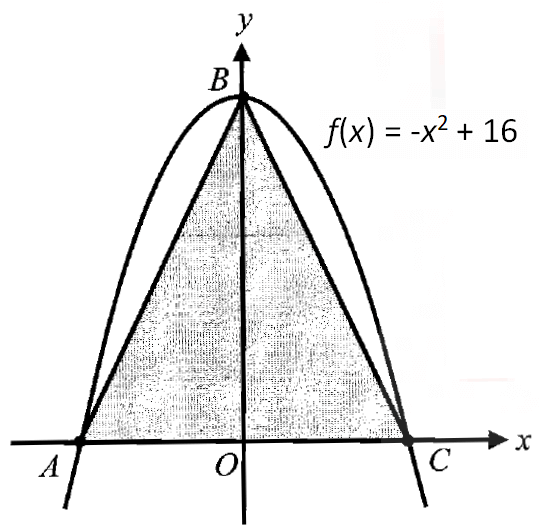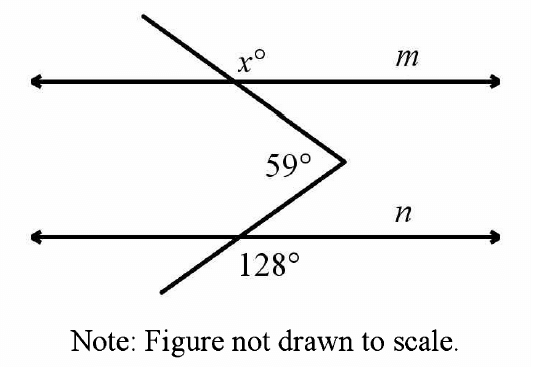FUNCTIONS WORKSHEET
Problem 1 :
If f(x) = (1/2)x - 1, what is f(-2x + 1) equal to ?
Problem 2 :
If f(x) = √x + 2 and g(x) = (x - 1)2, find g[f(a)] - 2f(a).
Problem 3 :
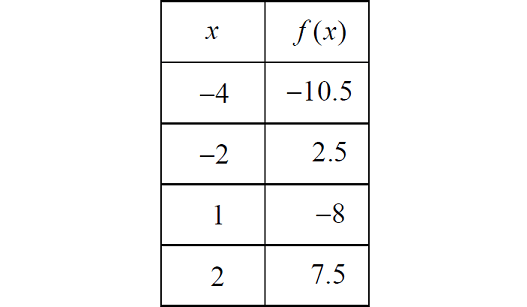
The function f is defined by a polynomial. Some values of x and f(x) are shown in the table above. What is the remainder when f(x) is divided by x + 2?
Problem 4 :
If (x + 2) is a factor f(x) = x3 + x2 + x + c and (-1, p) lies on the graph of f, what is the value of p?
Problem 5 :

The table above shows some values of the linear function f. Find f(x).
Problem 6 :
Let the function be f be defined by f(x) = 4x2 - 2 and let the function g be defined by g(x) = x3 - 5. Find the value of f[g(1)].
Problem 7 :
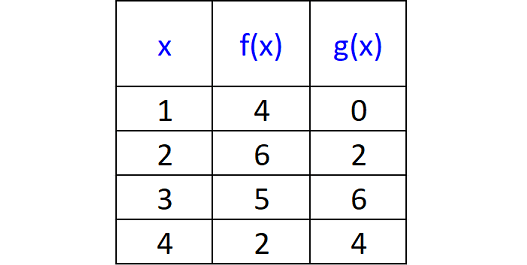
Four values of the functions f and g are shown in the table above. If g(a) = 4, find the value f(a).
Problem 8 :
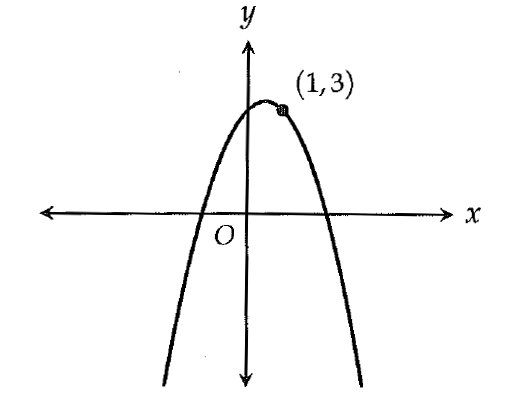
The graph of the function g in the xy-plane is shown above. If f is another function defined in the same xy-plane and f(1) = 1, then g could be which of the following?
A) f - 1
B) f - 2
C) f + 1
D) f + 2
Problem 9 :
f(x) = ax3 + b
In the function f defined above, 'a' and 'b' are constants. If f(-1) = 4 and f(1) = 10, find the value of 'b'.
Problem 10 :
The function f is graphed in the xy-plane shown below.
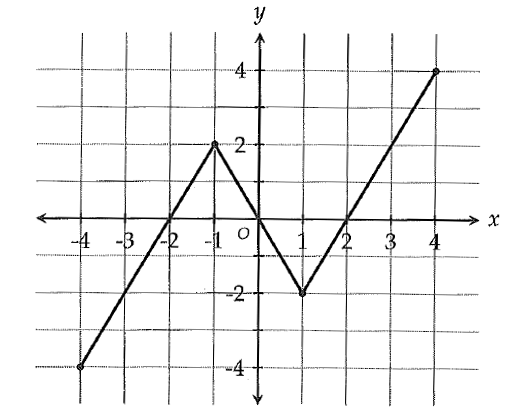
If f(c) = f(3), which of the following could be the value of 'c'?
A) -3
B) -2
C) -1
D) 2

Answers
1. Answer :
f(x) = (1/2)x - 1
Replace 'x' by '-2x + 1'.
f(-2x + 1) = (1/2)(-2x + 1) - 1
= (1/2)(-2x) + (1/2)(1) - 1
= -x + 1/2 - 1
= -x - 1/2
2. Answer :
f(x) = √x + 2 and g(x) = (x - 1)2
f(a) = √a + 2
g[f(a)] - 2f(a) = g[√a + 2] - 2(√a + 2)
= (√a + 2 - 1)2 - 2√a - 4
= (√a + 1)2 - 2√a - 4
= (√a + 1)(√a + 1) - 2√a - 4
= (√a)2 + √a + √a + 1 - 2√a - 4
= (√a)2 + 2√a + 1 - 2√a - 4
= a - 3
3. Answer :
Equate the divisor (x + 2) to zero and solve for x.
x + 2 = 0
x = -2
Now, substitute x = -2 in f(x) to get the remainder when f(x) is divided by x + 2.
Remainder = f(-2)

In the table above, when x = -2, f(x) = 2.5.
Remainder = 2.5
4. Answer :
Equate the factor (x + 2) to zero and solve for x.
x + 2 = 0
x = -2
When you substitute x = -2 in f(x), it will become zero. Because (x + 2) is a factor of f(x).
f(-2) = 0
(-2)3 + (-2)2 + (-2) + c = 0
-8 + 4 - 2 + c = 0
-6 + c = 0
c = 6
f(x) = x3 + x2 + x + 6
The point (-1, p) lies on the graph of f.
So, substitute x = -1 and f(x) = p in f(x) = x3 + x2 + x + 6.
p = (-1)3 + (-1)2 + (-1) + 6
= -1 + 1 - 1 + 6
= 5
5. Answer :

Choose any two points from the table above to find the slope.
(-1, 9) and (1, 3)
Slope of a line = (y2 - y1)/(x2 - x1)
Substitute (x1, y1) = (-1, 9) and (x2, y2) = (1, 3).
Slope of a line = (3 - 9)/(1 + 1)
= -6/2
= -3
Equation of line in slope intercept-form :
y = -3x + b
We can use one of the points from the table to find y-intercept 'b'.
Substitute (1, 3) in y = -3x + b.
3 = -3(1) + b
3 = -3 + b
6 = b
Therefore,
y = -3x + 6
or
f(x) = -3x + 6
6. Answer :
g(1) = 13 - 5
= 1 - 5
= -4
f[g(1)] = f(-4)
= 4(-4)2 - 2
= 4(16) - 2
= 64 - 2
= 62
7. Answer :
g(a) = 4 ----(1)

In the table above, when x = 4, g(x) = 4.
So,
g(4) = 4 ----(2)
Comparing (1) and (2),
a = 4
f(m) = f(4)
In the table above, when x = 4, f(x) = 2.
Therefore,
f(m) = 2
8. Answer :
Given : f(1) = 1.
So, the point (1, 1) is on the graph of the function f.
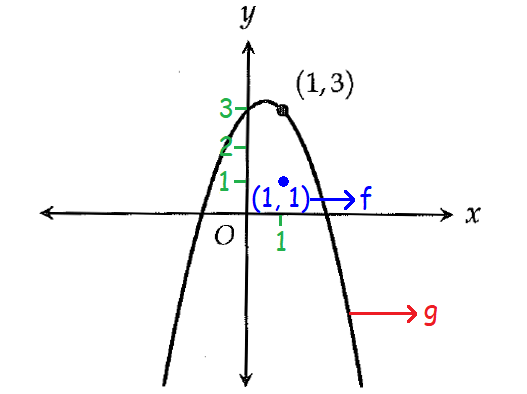
From the picture above, to get the graph of the function g, we have to do a vertical translation of the graph of f by 2 units up.
Thus,
g = f + 2
The correct answer choice is option (D) f + 2.
9. Answer :
f(x) = ax3 + b
f(-1) = 4
a(-1)3 + b = 4
a(-1) + b = 4
-a + b = 4 ----(1)
f(1) = 10
a(1)3 + b = 10
a + b = 4 ----(2)
(1) + (2) :
2b = 14
Divide both sides by 2.
b = 7
10. Answer :

In the graph above, when x = 3, f(x) = 2.
That is,
f(3) = 2
It is given that
f(c) = f(3).
Substitute 2 for f(3).
f(c) = 2.
In the graph above, f(x) = 2 when x = -1 or x = 3.
Therefore, c = -1 or 3.
In the given options, we have -1 only.
The correct answer choice is (C) -1.
Kindly mail your feedback to v4formath@gmail.com
We always appreciate your feedback.
©All rights reserved. onlinemath4all.com
Recent Articles
-
Digital SAT Math Problems and Solutions (Part - 143)
Apr 13, 25 12:01 PM
Digital SAT Math Problems and Solutions (Part - 143) -
Quadratic Equation Problems with Solutions
Apr 12, 25 08:21 PM
Quadratic Equation Problems with Solutions -
Digital SAT Math Problems and Solutions (Part - 142)
Apr 11, 25 06:26 PM
Digital SAT Math Problems and Solutions (Part - 142)
